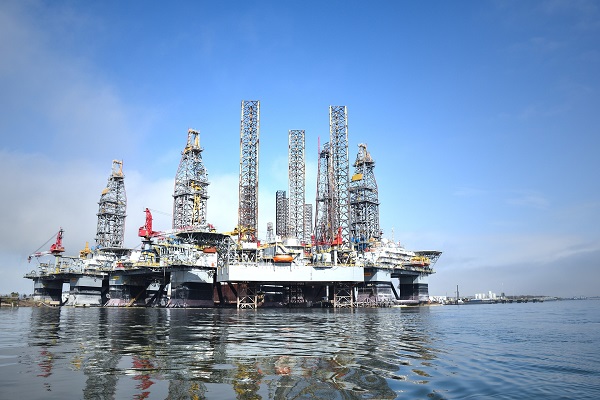Research is far from over in the field of petroleum engineering, which happens to be one of the highest-paying master’s degrees you can earn. Whether you want to work at the forefront of research or just want to know what lies ahead in your career in the oil and gas industry, it’s important for current and aspiring petroleum engineers to keep current on the latest research developments in the field. Just a few of those exciting areas of research include enhanced oil recovery, data-driven reservoir modeling, digitalization and automation and green methods of improved oil extraction.
Enhanced Oil Recovery
IMAGE SOURCE: Pixabay, public domain
The petroleum industry dates back to 1859, TIME reported, so today’s gas and oil companies already know how natural resource extraction can be accomplished. What the petroleum engineers who are currently researching enhanced oil recovery methods aim to do is to make these processes better in a variety of ways.
For example, longstanding methods of oil extraction are unable to retrieve all of the natural resources contained within an underground reservoir. Researchers are now exploring tertiary methods of oil recovery that can be used to retrieve resources that remain in the deposit after the primary and secondary recovery methods have been implemented.
Another problem oil and gas companies face is that extraction of petroleum products is expensive. By researching and developing more cost-effective drilling systems, petroleum engineers are making it possible for the oil and gas industry to tap into resource deposits that would cost-prohibitive under conventional drilling methods.
Developing novel ways to retrieve leftover crude oil that can’t be extracted from drilled wells by existing methods is a way of reducing waste, especially as the money has already been spent and the environment already affected when the well was originally drilled.
Data-Driven Reservoir Modeling
The reservoirs that hold crude oil are deep underground, so engineers can’t simply look at them with their eyes or measure them with basic measuring tools. Instead, they need to use technology to find and assess them and to predict how much oil they will produce. The more accurately a petroleum engineer can do this, the better. Data-driven reservoir modeling, sometimes called reservoir analytics, is a digitalized and more advanced form of reservoir simulation made possible through the application of machine learning and artificial intelligence systems, according to the Society of Petroleum Engineers.
Accurate reservoir modeling and simulation is essential because inaccurate estimations of production could cause oil companies to undertake expensive extractions that yield little fuel resources in comparison with their financial and environmental price tag.
Digitalization and Automation in Petroleum Engineering
Reservoir modeling isn’t the only aspect of petroleum engineering that can be improved through digitalization. Digitalization and automation have become hot topics in petroleum engineering research. Digital transformation of drilling operations allows for more efficient and safer drilling procedures. Automation in well construction, through the use of artificial intelligence to run the tubing inside wells, has already proven to be superior to using human judgment at performing this task, according to the Journal of Petroleum Technology.
In remarks composed for a 2019 conference on digitalization and automation in the oil and gas industry, Secretary of the U.S. Department of Energy Dan Brouillette noted the importance of innovations like these on reducing emissions while still producing fuels.
Green Methods of Improved Oil Extraction
Improvements in oil extraction often focus on cost and efficiency, but environmental issues have also moved to the forefront of research in petroleum engineering. Both the burning of fossil fuels and the processes used to extract them – such as clearing the land where wells will be drilled – affect the environment in a negative way. While oil and gas remain widely used fuel sources, it’s essential that researchers in the field find ways to reduce the environmental footprint that accompanies a major project like drilling a new well and extracting oil from a buried reservoir. These methods, which often focus on decreasing the amount of emission produced and minimizing the disruption to the surrounding environment, are sometimes referred to as green methods of oil extraction.
As research focuses on fuel sources have shifted to clean, renewable energy sources, some petroleum engineering programs have changed their names and curricula to better align with the broader, more environmentally conscious field of energy resources engineering.
Additional Resources
What Does It Mean to Be a Petroleum Engineer?
Will The Move to Cleaner Energy Make Finding a Job in Petroleum Engineering More Difficult?
What Kind of Computer Programming Do I Need in Order to Be Successful in Petroleum Engineering?

